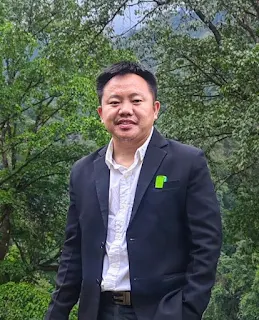Advocate-activist goes missing after anti-dam protest in Arunachal: Concerns mount over safety, state suppression
Serious concerns have emerged over the safety and whereabouts of Advocate Ebo Mili, a prominent indigenous rights defender and member of the Idu Mishmi tribal community, who has gone missing since the evening of May 26, 2025. Mili, known for his unwavering advocacy for indigenous rights and environmental protection, had been leading a peaceful protest against the proposed 11,000 MW Siang Upper Multipurpose Project (SUMP) under the banner of the Siang Indigenous Farmers’ Forum (SIFF).
The protest, held on May 22 and 23 in Begging village, Siang district, was a constitutional exercise of the right to freedom of expression and peaceful assembly under Articles 19(1)(a) and 19(1)(b) of the Indian Constitution. Local communities have long voiced fears that the SUMP will result in massive ecological destruction, forced displacement, and loss of ancestral lands—without their free, prior, and informed consent.
However, shortly after the protest, on May 26, Siang Deputy Commissioner P.N. Thungon filed charges against Advocate Mili under Sections 135, 191, and 324 of the Bharatiya Nyaya Sanhita, 2023, along with Sections 3 and 4 of the Prevention of Damage to Public Property Act, 1984. Authorities accused Mili of violating Section 144 orders and “leading a mob,” though witnesses report the protest remained entirely peaceful.
Mili’s disappearance around 6:20 PM on May 26, following these legal actions, has sparked outrage among activists, legal experts, and civil society. Critics argue that the charges appear retaliatory in nature—an attempt to criminalize dissent and intimidate those opposing large-scale development projects.
“This is not an isolated incident,” said one observer. “Mili has been detained multiple times—in March 2022, August 2023, and July 2024—for similar peaceful actions. This pattern of state response undermines not only India’s Constitution but also its international commitments, including the UN Declaration on the Rights of Indigenous Peoples.”
The lack of transparency about Mili’s current location and condition has further heightened fears of unlawful detention or worse. Civil society organizations and indigenous groups are now calling for urgent action:
1. Immediate Release and Clarity – Authorities must ensure the prompt and safe release of Advocate Mili and publicly disclose his current condition and whereabouts.
2. Withdrawal of Charges – All charges related to the May protest must be dropped, acknowledging the constitutional right to peaceful protest.
3. Meaningful Dialogue – The government must engage with SIFF and other indigenous groups to address concerns around SUMP and uphold the principle of free, prior, and informed consent.
4. Protection of Activists – There must be an end to the misuse of legal and security mechanisms to target environmental and indigenous rights defenders.
The deployment of Central Armed Police Forces (CAPF) to facilitate pre-feasibility studies for the SUMP, despite widespread local opposition, has only deepened tensions in the region. Critics argue that prioritizing infrastructure projects over community welfare and ecological preservation could lead to long-term instability.
The government now faces growing pressure to uphold democratic principles, protect the rights of indigenous communities, and ensure transparency and accountability in its approach to development in Arunachal Pradesh.


Comments